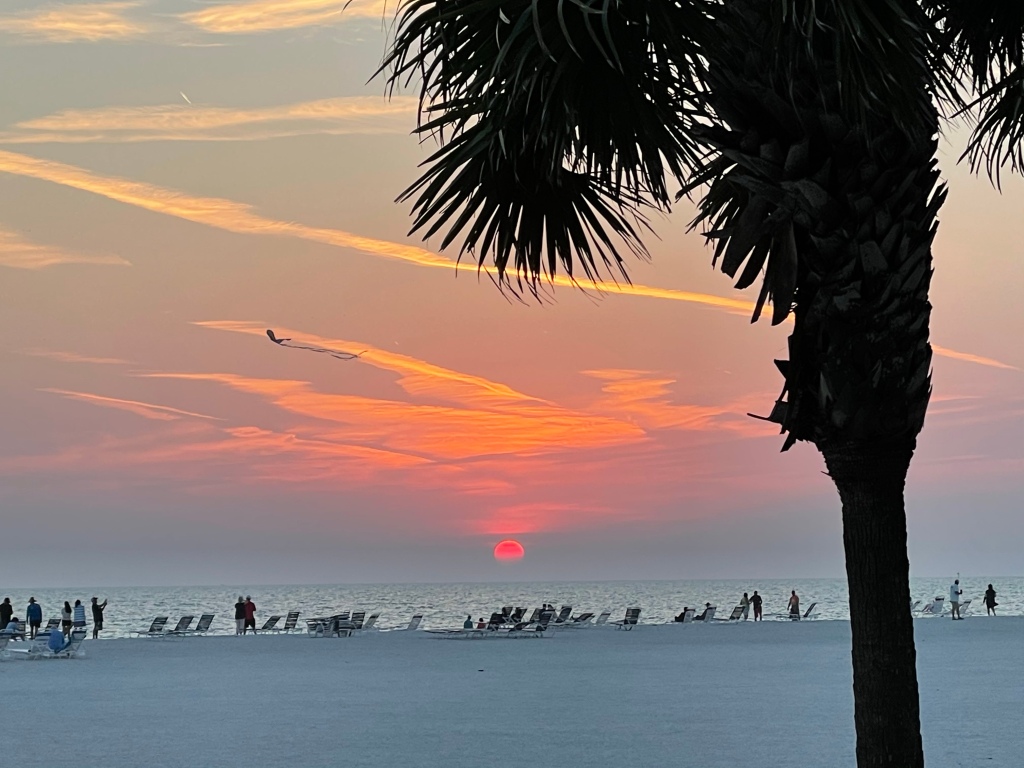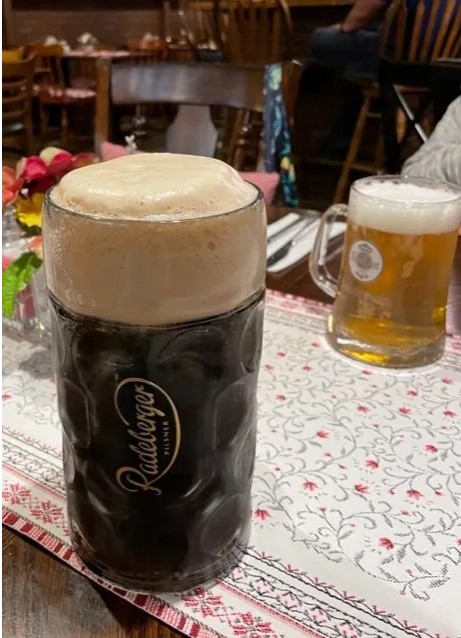I didn’t believe in Al-Anon’s first two steps until they restored me to sanity

My Al-Anon group* discussed “Step 2” this week, which is always a good reminder for me of what I should attend to (my own stuff) and what I should let go of (everyone else’s stuff).
To me, the first two steps are intertwined:
Step 1: We admitted we were powerless over alcohol—that our lives had become unmanageable.
Step 2: Came to believe that a Power greater than ourselves could restore us to sanity.
At the beginning, I fought these two steps with everything I had.
Sixteen years ago, a dear friend dragged me to my first Al-Anon meeting. Desperate to find a way to reach my increasingly irrational and abusive alcoholic husband, I just listened and cried. I didn’t say a word for months, but others’ stories touched me, and I found comfort knowing I wasn’t alone. I was relieved I didn’t have to explain what was happening or justify why I felt the way I did. They’d lived it too, and they understood.
I kept going.
But I didn’t buy the steps. I couldn’t be powerless! If I was powerless, I couldn’t change my situation, and that could not be true. I had agency; I just needed to find the right words to show him how he was hurting me, because surely, he didn’t mean to, and he didn’t realize it.
I hung in there waiting for the day they would finally tell me how to fix him.
In the meantime, I protected him. Like many loved ones of alcoholics, I tried to control every aspect of our lives to minimize the chaos my husband caused. I justified his absences, I covered up his mistakes, I insisted he didn’t mean those nasty things he said.
But I would get so upset with him when my attempts to control things inevitably failed that my anger and frustration spilled out everywhere. So what my kids primarily remember from that time is not how badly their father behaved, because that was just normal, but how irrationally their mother did.
To this day, they joke about “the year Mom went crazy.”
Step 1 wanted me to accept that my sense of control was an illusion and my attempts at controlling the situation were not working. To long-time control freaks like me, giving up control doesn’t come easily and looks a lot like losing control. Still, I resisted.
But then he turned on the kids.
Unlike me, my children have always had the gift of seeing their father for exactly who he is. They knew he drank too much, and they knew he was mean when he drank. They knew when to avoid him and when to ignore his words. He was a good dad most of the time, and they loved him. They didn’t bother trying to reason with him; they just kept their distance when prudent. I could have learned from them.
But as they got older and challenged our rules and opinions more, he belittled and harassed them more. I tried to deflect it, to take the blame, to rationalize his words. I would say, “Oh, he was just joking,” or “It’s the beer talking, not your dad.”
I wasn’t fooling anyone but myself.
Finally, when a freshman in college, my firstborn said to me:
“I don’t know why you put up with him, but I don’t have to anymore. My lease runs through August, so I’m going to stay at school and work up there this summer. I’m not coming home again if I have to live with him.”
That cleaver through my heart sliced through all my denial. I couldn’t fix this. My life had become unmanageable, and I was powerless.
My baby boy refusing to come home slammed me into rock bottom.
Step 1, check.
I went back to the Al-Anon lessons again and focused on what I hadn’t before. I was powerless over alcohol and my husband’s behavior, yes. My son was now an adult, and I was powerless over him, too. But I was not helpless. I was still in charge of my own choices and behaviors.
I could not change my husband, but I could change myself.
Step 2 seemed irreconcilable with my worldview, though. Al-Anon references the God of our understanding, and as a lapsed Catholic, I had grievances with the God I was raised to know. I wasn’t sure a power greater than myself even existed, but I especially couldn’t believe in a God who let terrible things happen to good people, and I refused to pray to a supreme being I was skeptical of.
But Al-Anon tells us to “take what you like and leave the rest.” I trusted my friends, ignored the God talk, and kept going.
And something magical happened when I finally admitted I was powerless over anyone but myself: I was also freed from responsibility for anyone but myself. An enormous, self-imposed weight fell away.
My mantra went from “I’ll take care of it” to “Not my problem.“
I accepted what I couldn’t change and began to change what I could. Solutions to my own problems came to me when I stopped wishing for a particular outcome and started wishing for whatever was best for me.
And without my stepping in to fix things, other people stepped up to take care of their own problems, or they experienced the consequences when they didn’t. Crises resolved themselves even when I didn’t lift a finger, or they blew up, but it wasn’t my fault.
Step 2 is reflected in the slogan, “Let go, and let God.” I can’t explain the God of my understanding, and I still don’t care to use the term God; if pressed, I’ll call it the universe. But something took over when I let go, and my mental health improved exponentially. It restored me to sanity, just as Step 2 had promised.
Many say:
“God took care of you.”
I say:
“The universe knew X was supposed to happen.”
Al-Anon says:
“Your higher power did for you what you couldn’t do for yourself.”
My concept of a higher power remains nebulous, but I’ve seen so many situations resolved in positive ways that I believe there’s something to it, even though I don’t know what it is. Maybe it’s just that the program and the group have infused me with their strength and hope so that my thinking is clearer.
When I stopped focusing on the semantics, I finally understood that what my higher power is and what I call it don’t matter. I just need to trust it.
Step 2, check.
I am not finished with the steps, though. We can’t check them off as if done forever.
Many people in my life still drink excessively, and their actions still affect me. I handle it better, but old fears and impulses can surface when I am stressed.
Steps 1 and 2 remind me to mind my own business and allow my loved ones the dignity to live the way they want. Even when I believe their choices are bad for them, it’s not my job to interfere or to take on their problems.
It’s not my place to decide what’s bad for them, anyway. They have their own higher powers.
Sometimes newcomers are dismayed to realize there’s no “graduation” from Al-Anon. They are in crisis, desperate for the magic wand that will fix their loved ones, as I had been. When they learn many of us have been coming for years or even decades and don’t see an ending date, they despair even more, unable to bear the idea of waiting that long to feel better.
Many, like me, can’t see the necessity of giving up control and don’t believe in a higher power.
I tell them:
I was a skeptic, but those steps I battled so hard ended up saving me.
We gently suggest they just keep coming back. We wish them well, we hope they return, and we let it go. They, too, have their own higher powers who will show them the light when they’re ready.
*For those unfamiliar, Al-Anon is a support group that helps loved ones of alcoholics recover from the effects someone’s drinking has had on our own lives, and we practice the Twelve Steps and Twelve Traditions of Alcoholics Anonymous ourselves. Please feel free to reach out if you have questions.

